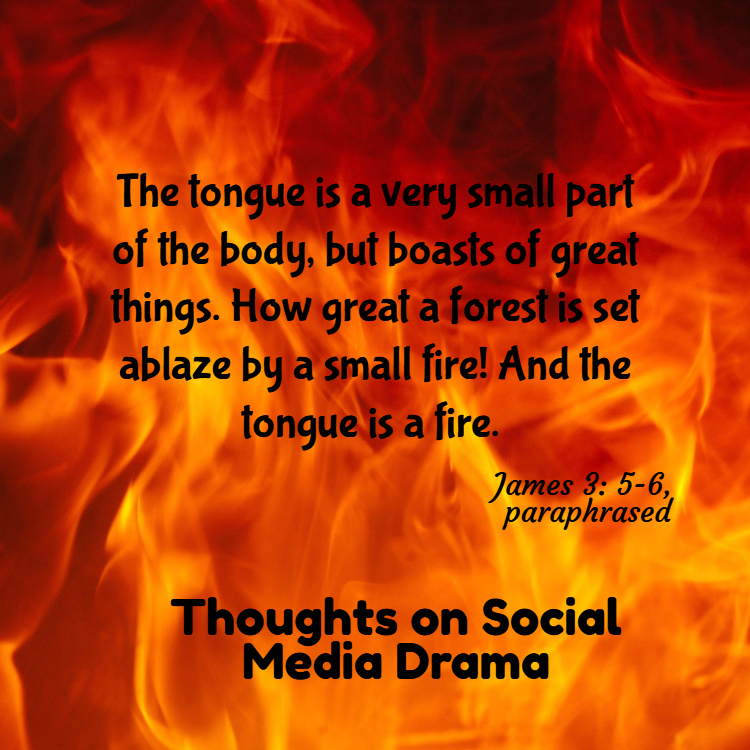Why All the Social Media Drama?
Some People Need to Feel Superior by Always Being Right
Many people have been hurt leading up to and after the election by social media drama. Friends and family have rejected each other because of opposing views. It seems some people have forgotten how to be kind to others. Although many talk about tolerance, they aren’t tolerant of others who disagree with their views. People are actually unfriending each other virtually and in the real world over this. They seem to have forgotten their common humanity, as well as their manners.

Why do people do this? Some appear to get their significance by being right. So if someone implies they aren’t right, they get defensive or go on the offense. I get my own sense of worth from knowing I’m a loved child of God, so what others think of my opinions really doesn’t matter. I am free to be kind to those who disagree with me and try to have a rational discussion to try to find some common ground.
If someone starts attacking the character of others on my own timeline, however, I don’t tolerate it. If he or she is not a real-world friend or someone I’ve worked closely with online, I just might unfriend him or her to protect my other friends from being attacked. If the person has usually been a real friend, I might just hide offensive posts.
I have seen two kinds of social drama. The first, mentioned above, involves people who strongly disagree with each other about politics, religion, or any number of other things and can’t help attacking those who disagree with them. Instead of saying things like “have you considered (any reason you have for your own beliefs)?” or “Here are some reasons why I have to disagree with you,” or “What makes you feel that way?” they attack with statements such as “You are an idiot to believe that.” They might even cuss at you.
Such statements make it clear that they don’t respect their friends with opposing views and cannot make a case based on facts or even reasons why they disagree. They certainly won’t win anyone to their way of thinking by making such personal attacks on people’s intelligence or character. They have made it clear they look down on and feel superior to those who oppose them.
Some People Seemingly Just Like to Start Trouble or Hurt People
We often call them trolls.

See that cloud over the troll’s head? Generally, that’s why trolls behave the way they do. If they see someone who’s happy they want to rain on their parade and say something nasty. I guess they enjoy making people feel as miserable as they feel. Those who create social media drama tend to have few real friends. They seem to get any sense of worth they may have in seeing how much trouble and pain they can cause. They don’t just pick on one person. They pick on almost everyone. They are the bullies of the internet and social media sites like Facebook.
How Do You Deal With Internet Bullies?
- You can unfriend them or just hide their hurtful remarks from your timeline.
- If you know them well enough to know why they are hurting, you might try to draw them out in a caring private message that expresses sympathy for the situation that’s hurting them and let them vent a bit to you.
- You can message a troll with a warning. After hiding the first attack post, tell trolls kindly you don’t tolerate personal attacks on anyone on your timeline and if they persist you will regretfully have to unfriend them. This will probably get you either an apology from a real friend or an even worse attack from someone who isn’t.

I was inspired to write this post by reading “Let’s Talk About Preventing Social Media Drama” by Eileen Calandro who was guest posting on “She Saved.” In her post, Eileen shares her interaction with a mother whose daughter had innocently posted something she never expected would hurt a friend, but seemingly it did. The mother was contacted by the friend’s mother who said her daughter had been hurt by the post. Eileen offers her response to the mother of the poster. It is a helpful post if you have children active on social media and you want to protect them from social media drama. Although this was a mild case, we do know that some teens have killed themselves after being attacked by internet bullies.
How do you handle social media drama in your social media interactions?





